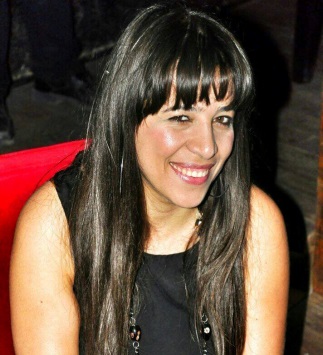
Noha started her work with Caritas Lebanon Migrants Center (CLMC) as a social worker inside Beirut’s Detention Center for Foreigners and Lebanese prisons. She worked there for more than 10 years before being assigned as the Head of the Training Department and Advocacy at CLMC. Noha saw migrant workers and refugees in their most distressed and vulnerable state. She came to learn that many were in detention because they had made an innocent or simple mistake, or they lacked the right documents, or were fleeing from abusive employers. Now she trains officials including law enforcement in the rights of migrant workers, to provide training, support migrant workers, and to change attitudes in the wider Lebanese community towards migrants and refugees.
In 2014, Noha was a participant in the migrant workers program held in Kuwait. She has found the DTP incredibly influential in her work as an advocate.
“The DTP/MFA training has provided me and Caritas with useful connections that are of practical help in my work for migrant workers.”
Noha wants people to see the potential migrants bring to Lebanon – their cultures, perspectives, skills and knowledge. In the 2015-2016 DTP’s Migrant Workers program in Bangladesh, Noha returned as a DTP trainer. She brought real stories and experiences for participants to comprehend. Her sessions were very practical.
“When I talk about migration, I speak about conventions related to migration. I referred to the information I received from my DTP training. Furthermore, when I encounter cases in countries of origin, I follow up with DTP participants.”
Lebanon is a major destination country for migrant domestic workers from Bangladesh and there are many reports of abuse. Noha was able to share about the situation in Lebanon, her work, and the work of the Bangladesh mission in Beirut. The participants were deeply appreciative to know that they have friends in Lebanon – people they can work with and there were discussions on how to collaborate on cases, policies and on a shared advocacy strategy for the rights of migrant workers in Lebanon.
Since April 2016, Noha became responsible for the Secretariat of the Social Workers’ Syndicate in Lebanon. The strategy will be launched at the end of 2016. This strategy targets professionals and beneficiaries in addressing social justice and how to apply code of ethics.
DTP acknowledges the traditional custodians of the land on which we work, the Bedegal people of the Eora Nation. We recognise their lands were never ceded, and we acknowledge their struggles for recognition and rights and pay our respects to the Elders – past, present – and the youth who are working towards a brighter tomorrow. This continent always was and always will be Aboriginal land.
Aboriginal and Torres Strait Islander peoples should be aware that this website contains images or names of people who have passed away.
DTP acknowledges the traditional custodians of the land on which we work, the Bedegal people of the Eora Nation. We recognise their lands were never ceded, and we acknowledge their struggles for recognition and rights and pay our respects to the Elders – past, present – and the youth who are working towards a brighter tomorrow. This continent always was and always will be Aboriginal land.
Aboriginal and Torres Strait Islander peoples should be aware that this website contains images or names of people who have passed away.
Privacy Policy | Terms of Use | Disclaimer | Policies
© 2022 Diplomacy Training Program | ABN 31 003 925 148 | Web Design by Studio Clvr